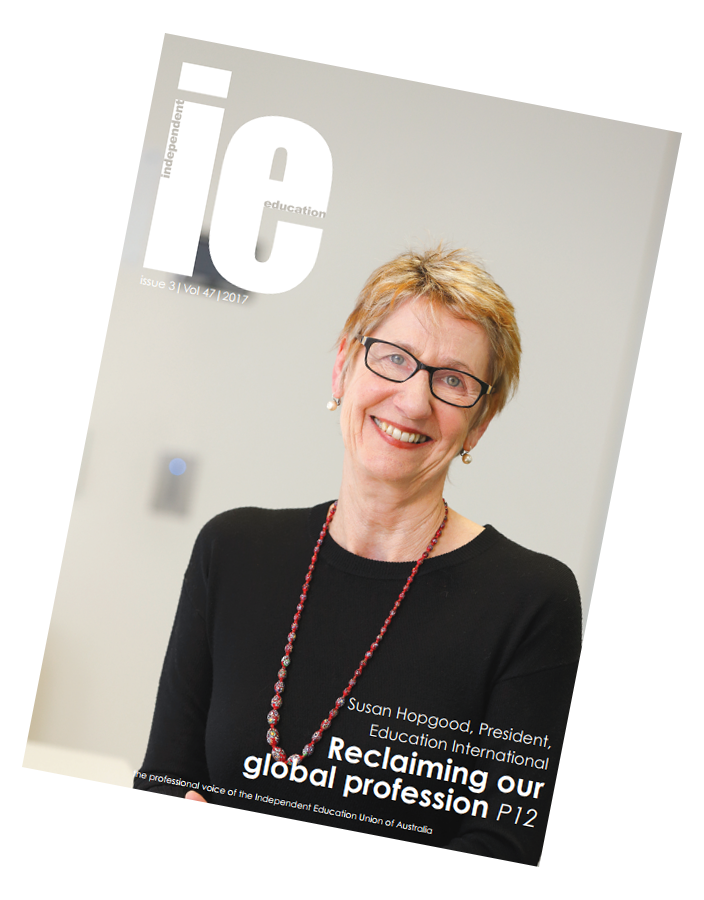
In this edition of IE, Susan Hopgood, President of our international federation of teacher trade unions, Education International, writes about the need for us to reclaim the profession.
It seems that almost every week, teachers in Australia see yet another move to remove professional judgement from the key areas of education, be that from the assessment and reporting of student achievement, to the opportunity to provide professional input into the training and regulation of the profession.
I think back over the last few months to the issues that grab newspaper headlines and I reflect on the way in which teaching, one of the noblest professions, is being undermined through over review, over regulation and control.
One of the latest issues relates to the trend of data driven performance improvement. Don’t get me wrong, data collection for clear, precise reasons coupled with intelligent and insightful analysis, is a fundamental way of moving forward, whether we are talking about improving traffic flows or cancer treatment.
However, Australia has followed the world wide trend of measurement for the sake of measurement, and the pervasive view that the more you measure it, the fatter the farm animal gets. What you feed it and the conditions in which it is nurtured don’t seem to matter. Most recently we have seen the concern of NSW teachers and parents over the proposed use of Year 9 NAPLAN scores as the gatekeeper to students’ future participation in learning in Years 10, 11 and 12. Data comes and goes, but analysis and strategic and insightful intervention is what matters in assisting students to participate effectively in learning.
Teaching, more than any other profession, is subject to high levels of government intervention and the whims of electoral cycles. Preservice teacher education, for example, has been one of the most government reviewed aspects of higher education. No other profession seems to fall under the constant control of politicians. With each review, the profession is criticised for lacking rigour and quality. The irony however is that with greater regulation of the profession, comes less autonomy to use that professional knowledge. Most recently two of Australia’s states and territories, Victoria and ACT, have followed NSW in introducing reportable conduct schemes. Lack of consultation and input from the profession results often in impractical and inappropriate strictures on being able to teach effectively. Protecting children and young people from harm is crucial, but respecting the professional input of teachers and principals is the most effective way of getting that protection right.
A unified profession is one of our greatest strengths and we all need to be vigilant in working together to reclaim our profession.
Debra James
iemagazine@ieu.asn.au


































































































































